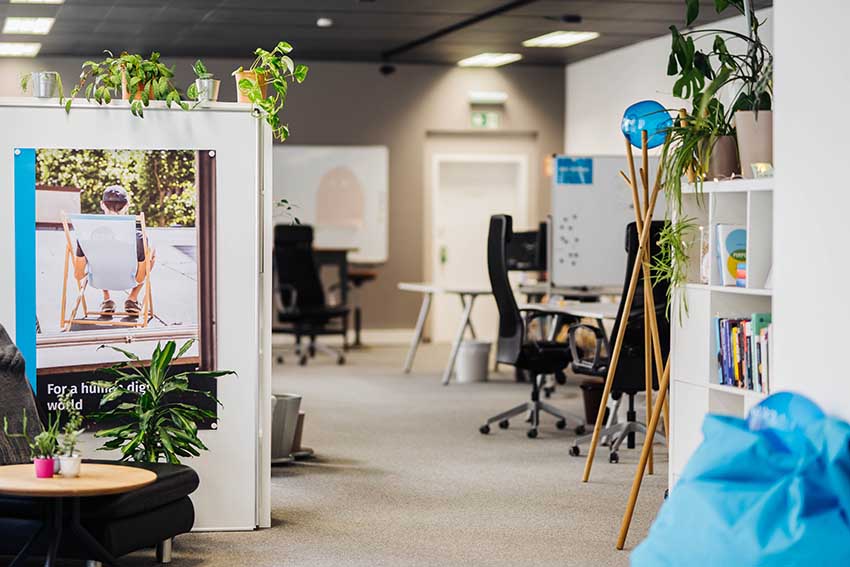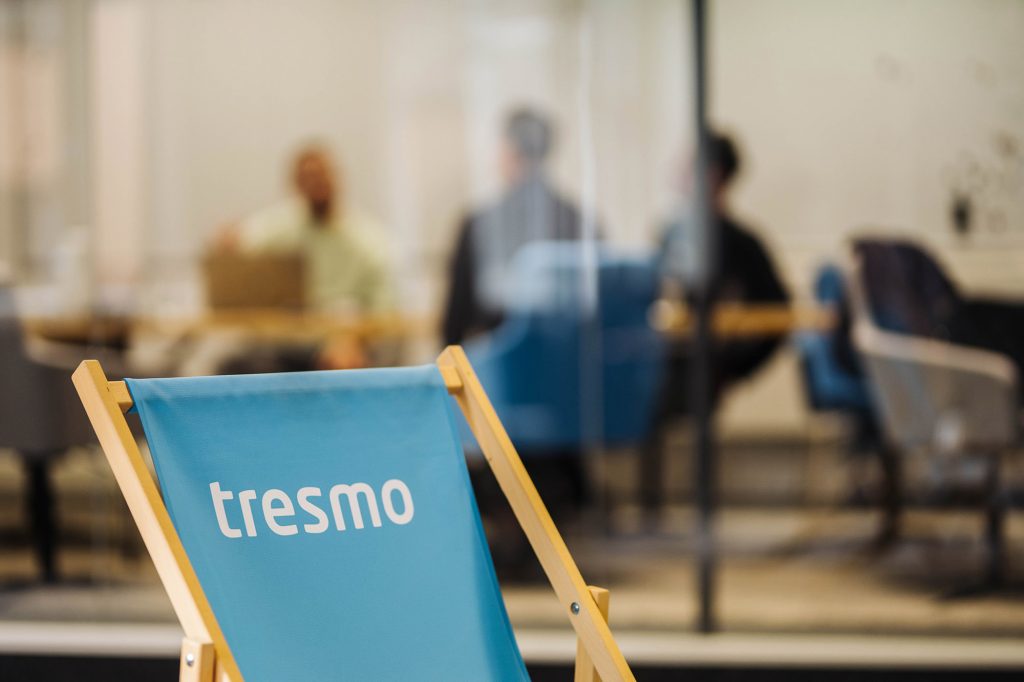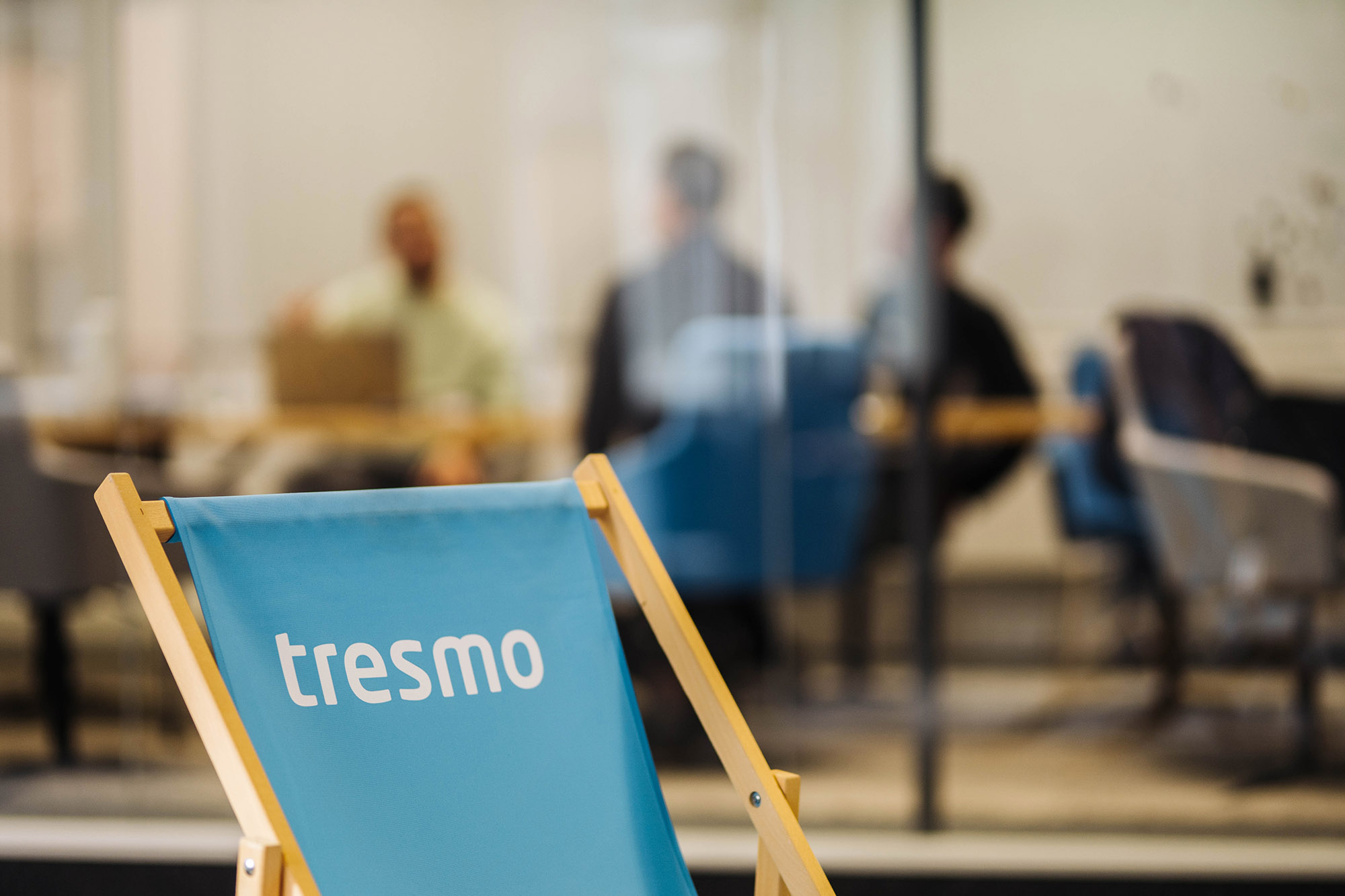For over 11 years, Tresmo has been developing digitally successful products and flexibly adaptable solutions for the Internet of Things (IoT), Cloud, and Apps. Right in the heart of Augsburg, Germany.
With their experience, Tresmo aims to support manufacturers of various products (e.g. coffee machines, heating appliances, and industrial robotics) to revolutionize their aftersales offering and activities. Their own Smart Product Platform allows companies to provide digital offerings such as analytics, reporting or smart maintenance and create new revenue streams using subscriptions or pay-per-use.
With Tresmo‘s comprehensive cloud-based white label solution, they are revolutionizing how to create and use smart, connected products.
Easy Engineering: What are the main areas of activity of the company?
Tresmo: Our Smart Product Platform is revolutionizing our customers’ after sales. It enables forward-looking business and service models, such as paid subscription and pay-per-use models.
We make our customers’ physical products smart. That is, we connect their products to the Internet (if required) and offer valuable features like remote monitoring, remote control, multi-tenancy and hygiene documentation. The heart of our solution is a freely configurable pay-subscription feature with which companies can easily realize countless digital business models.
E.E: What’s the news about new products?
Tresmo: Companies often have a website to present themselves and their product portfolio to customers. In addition, they may have their own online shop where customers can purchase products easily. But what’s beyond that?
Mostly nothing, unfortunately.

Companies lose contact with their products when they have been sold to a customer. Few touch points arise in case of maintenance of guarantee. However, these touch points are mainly negative.
This is where our Smart Product Platform comes in.
First and foremost, companies need to create new revenue streams in the after sales market for many reasons. They can achieve this by paid features (e.g. cloud features like hygiene documentation, guaranteed service levels) or consumption-based pricing (e.g. Pay-per-Unit). Second, manufacturers and resellers can increase their after sales revenue through integrations of web shops and direct sales of consumables. Smart connected products allow the monitoring of actual usage data. Third, servitization is becoming more and more important for customers. Companies must offer valuable after sales services for their products. However, companies are suffering from the shortage of skilled employees on the market. A smart product platform represents an easy solution to address these challenges.
E.E: What are the ranges of products?
Tresmo: We see a wide range of physical products. There are a lot of “smart” devices in the B2C market, especially for smart home applications and e-health solutions. Penetration in the B2B area is significantly less. The penetration in B2B is significantly less. However, smart products are becoming increasingly important in industry. This begins with fully automatic coffee machines for the gastronomy sector, heating and cooling technology, and extends to automation technology.
E.E: At what stage is the market where you are currently active?
Tresmo: The answer to this question must be very differentiated, because there are great differences in the market. Depending on the size of the company, its financial and human resources, and its know-how, there are both true pioneers and laggards in the area of smart products.

From our experience, the situation is particularly difficult for the hidden champions: these companies are suffering from the current shortage of skilled workers enormously. That’s why they are very open to the topic itself, in order to relieve their existing employees. However, they cannot invest exorbitantly high budgets in digital offerings.
E.E: What can you tell us about market trends?
Tresmo: We recognize three developments that are currently strongly influencing the market.
1) Decreasing profit margins for physical products
Profit margins on physical products are falling. Where once a significant amount could be added on to the sale of a manufactured device, significantly less margin is possible today. This is because the general rise in the cost level of manufacturing machinery and equipment is placing a greater financial burden on end customers anyway. If the same margins were to be added as was the case a few years ago, hardly any company would be able to afford such a purchase. Conversely, this means that manufacturers will have to generate other, alternative revenue streams in order to cover their costs and continue to generate profits. The pure sale of physical products is no longer as profitable economically as it once was.
2) Servitization as a new business model
For this reason, the trend is increasingly toward servitization. Servitization – or smart service – is a business model in which companies offer data-based services in addition to their physical products. These are based on the insights gained from networked devices and systems.
Smart services can include predictive maintenance, real-time monitoring, remote control and diagnostics, and data-driven optimization. The goal is always to increase customer value and develop new revenue streams. In this way, the lower margin from the pure sale of physical products can be offset.
3) Sustainability through remote management
One factor that is of great importance here in our field is service journeys. Service personnel often travel long distances in their vehicles to commission, inspect or repair equipment and systems. Remote management – a feature enabled by our Smart Product platform – can significantly reduce these long distances. This not only saves personnel, time and money. The reduced service trips also reduce the impact on the environment and a company can operate in a much more sustainable manner.
E.E: What are the most innovative products marketed?
Tresmo: The most innovative products are rather products than holistic solutions that consist of a physical product and associated services to solve customer problems.

For example, let’s think about a fully automatic coffee machine in a restaurant. The restaurant owner has a horror scenario. All seats are occupied by thirsty customers, but the machine does not work. A fault in the grinder or just a necessary cleaning result in an economic loss.
The manufacturer’s holistic solution could avoid this. By connecting the machine, the manufacturer can guarantee the availability of the machine to the restaurant owner and act very quickly in case of a fault. In addition, the restaurant owner can anticipate necessary maintenance and cleaning at an early stage and plan ahead. Also, because the historical usage and production data makes it easier to predict the phases of high utilization.
Altogether, the manufacturer not only offers a fully automatic coffee machine but a solution for restaurant’s challenges.
E.E: What estimations do you have for 2024?
Tresmo: Our forecast for 2024 is clear:
Particularly in SMEs, there is a growing awareness that digital offerings are no longer “nice-to-have”. In contrast, supplementing one’s own physical product portfolio with digital offerings and services will become a real “must-have” in the coming years. This is a critical path for SMEs to remain competitive, compensate for the shortage of skilled workers and build up additional financial pillars.

